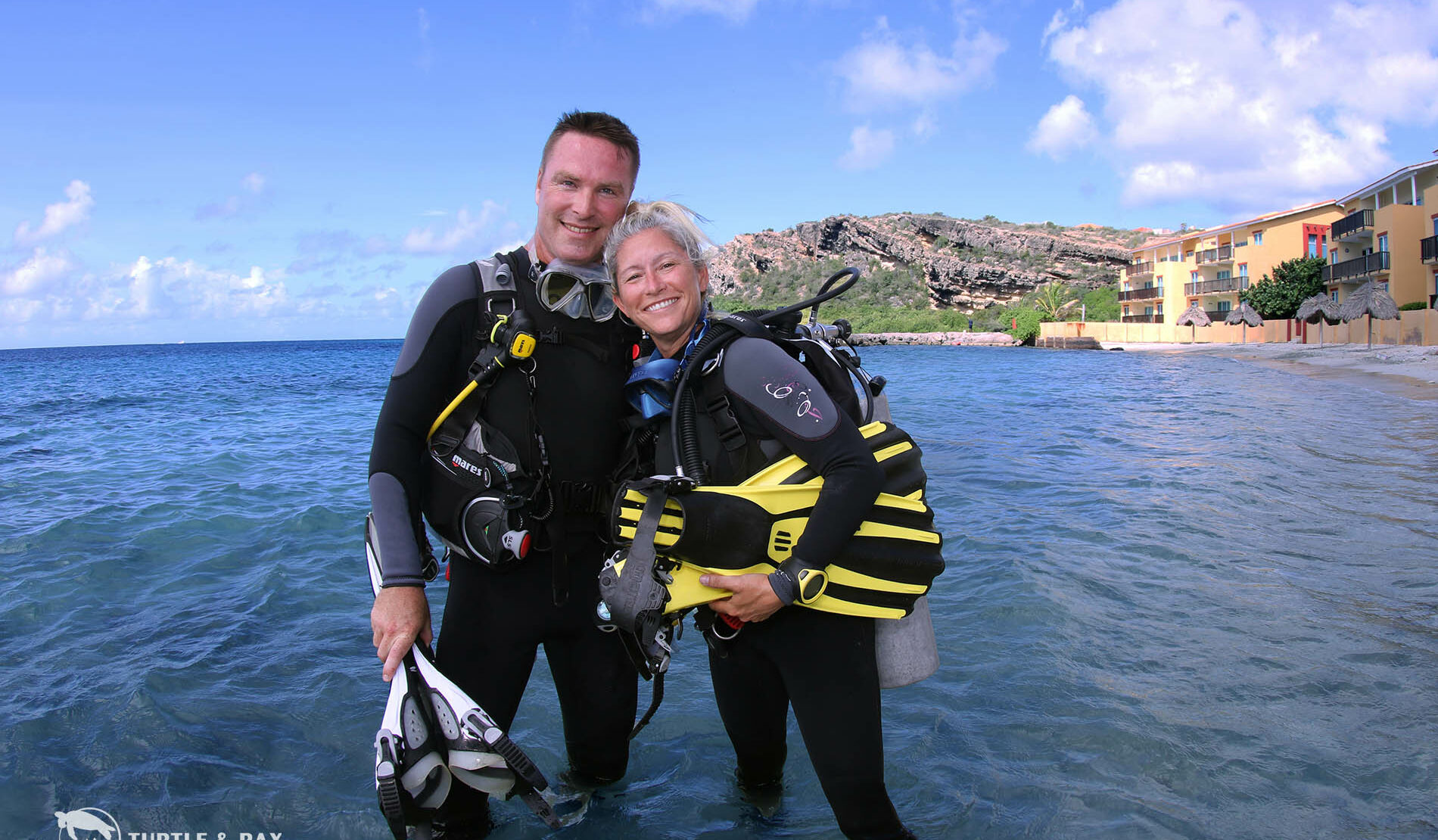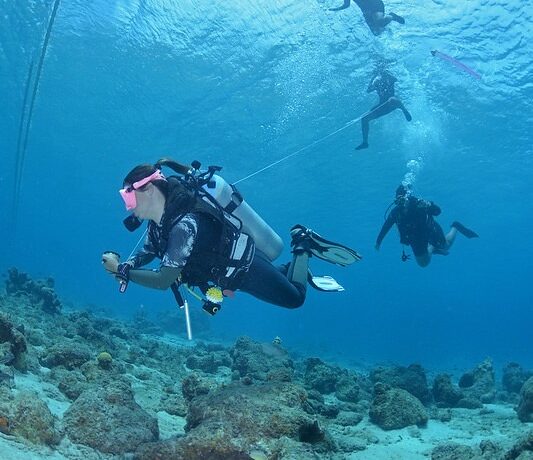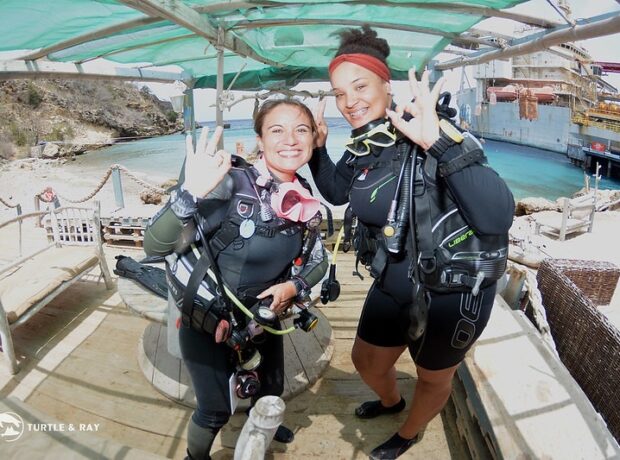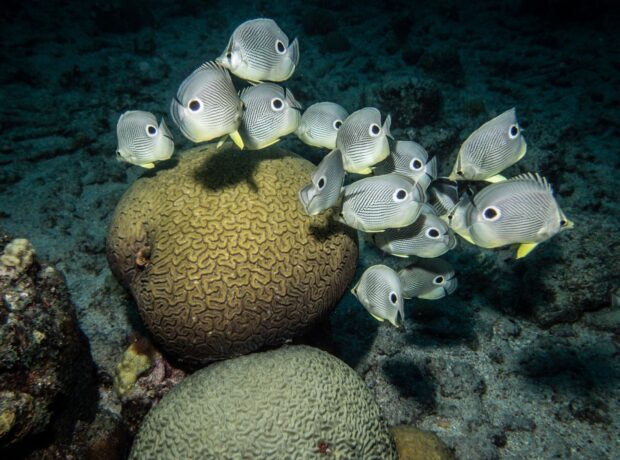You may have heard people say, “I’m a scuba diver,” or “I’m a PADI Diver,” but you may not have encountered the term Open Water Diver until you started searching for information about learning how to scuba dive or speaking to a friend who has. Here’s what you need to know:
When people say they have a diving license, a ticket, or a scuba certification, they’re talking about an Open Water Diver certification. PADI Open Water Diver is the first autonomous scuba certification level and allows you to:
- Obtain air fills.
- Rent dive equipment.
- Dive on your own with a buddy (who can be another Open Water Diver and does NOT have to be a diving professional) up to a maximum depth of 18 meters/60 feet.
- Take additional classes, such as underwater photography and videography.
- Progress to the PADI Advanced Open Water Diver level.
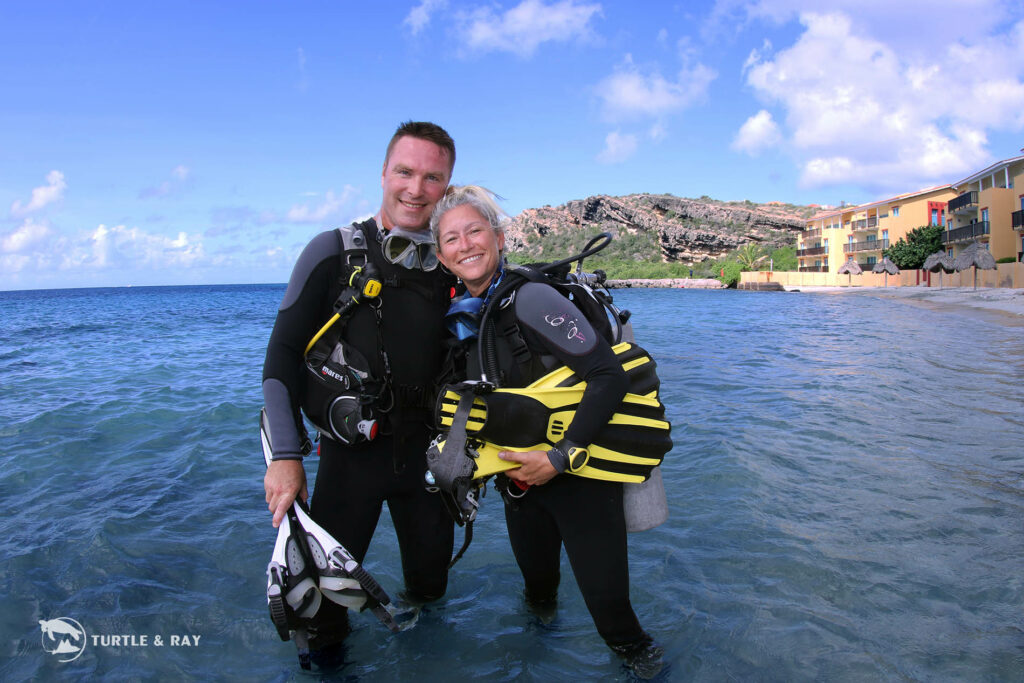
The Way the World Learns to Dive
The PADI Open Water Diver certification is the most-recognized scuba diving certification in the world, and more than 900,000 divers choose PADI each year.
So what’s the PADI Scuba Diver course all about? The PADI Scuba Diver course is a subset of the PADI Open Water Diver course.
Completing the PADI Scuba Diver course is a bit like obtaining a learner’s permit when learning to drive. It’s an intermediate step towards full scuba certification for aspiring scuba divers who:
- Don’t have time to complete the entire Open Water course.
- Can’t finish their Open Water training due to unique circumstances.
- Only want to dive with a PADI Professional (as opposed to with a buddy / another Open Water Diver).
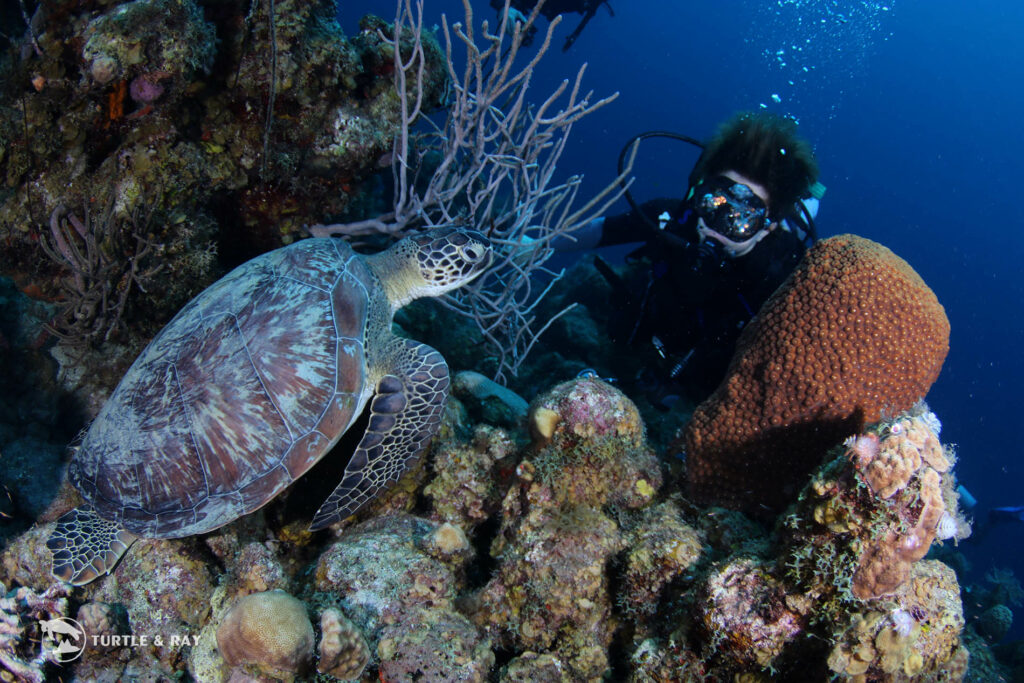
PADI Scuba Diver and PADI Open Water Diver: Pre-Requisites
To take part in a PADI Open Water Diver course or the PADI Scuba Diver course, you must be:
- Over 10 years old.
- Able to swim.
- Medically fit for scuba diving (in some countries, this requires a medical certificate from a physician). Note that this does not mean you need to be an Olympic athlete, but you need a reasonable fitness level.
PADI Scuba Diver Vs. PADI Open Water Diver: Maximum Depth
– Open Water Divers can plan and execute dives with a certified buddy or dive professional to a maximum depth of 18 meters/60 feet.
– Scuba Divers may only dive under the direct supervision of a PADI Professional (an Instructor) to a maximum depth of 12 meters/40 feet.
What is the Benefit of Diving Deeper?
Deeper doesn’t always mean better. Thousands of amazing dive sites worldwide can be dived at 12 meters/40 feet or less! However, being able to dive deeper, to 18 meters/60 feet as an open water diver, opens up even more dive sites for you to explore. Additionally, some marine species live in deeper waters, so diving deeper gives you an increased chance of seeing them. There are also wrecks to explore, different topographies, and different corals at depths between 12 meters/40 feet and 18 meters/60 feet.
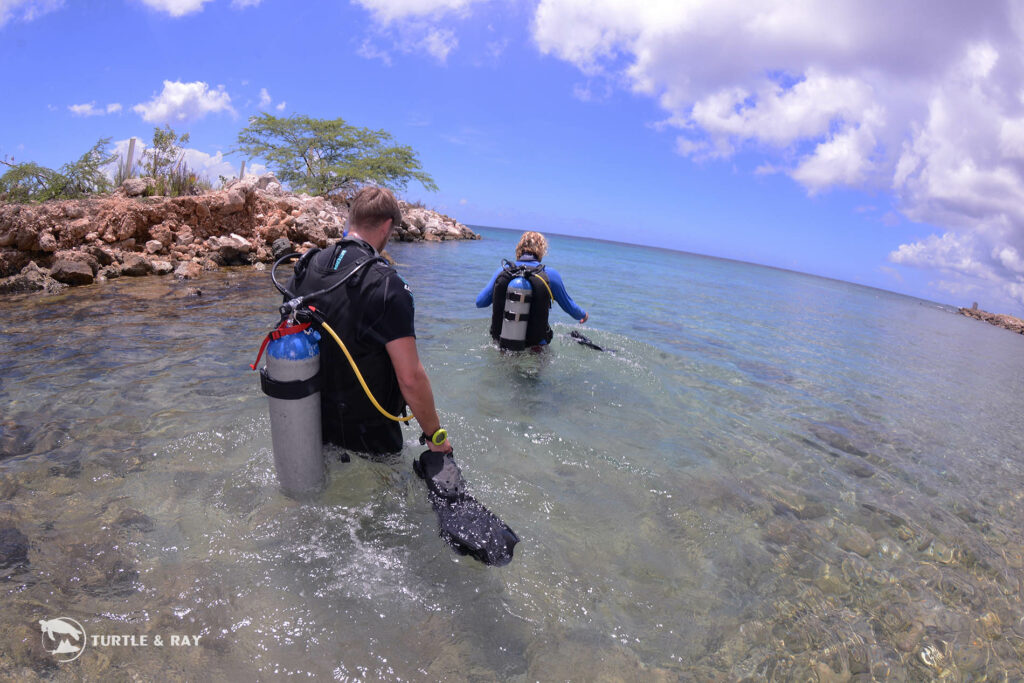
PADI Scuba Diver Vs. PADI Open Water Diver: Course Requirements
Open Water Diver with Scubaçao (2.5 days)
- Learn fundamental concepts about scuba through PADI eLearning or classroom instruction (knowledge development).
- Complete five confined water (pool) skill practice sessions.
- Complete four open water (ocean/lake) dives.
Scuba Diver with Scubaçao (1.5 days)
- Learn fundamental concepts about scuba through PADI eLearning or classroom instruction.
- Complete three confined water (pool) skill practice sessions.
- Complete two open water (ocean/lake) dives.
The PADI Scuba Diver course is (roughly) the first half of the PADI Open Water Diver course – which means you can upgrade with ease later. The PADI Scuba Diver course omits some of the more challenging skills that are included in the full Open Water Diver course (which you will complete if you upgrade later). It is a good choice for aspiring scuba divers who have limited time, are not sure they want to commit to a full open water course yet, or for children (over the age of 10 years).
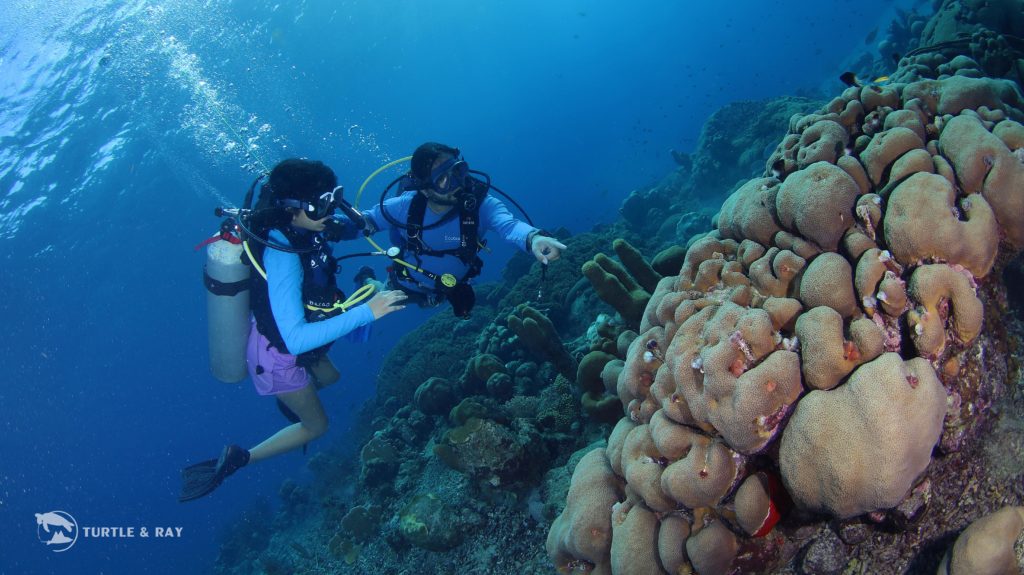
Upgrading from PADI Scuba Diver to PADI Open Water Diver
Looking at the information above, we can see that to upgrade to Open Water, Scuba Divers need to:
- Complete the remaining 2 out of 5 confined water (pool) skill practice sessions.
- Complete the remaining 2 out of 4 open water dives.
- Complete two additional knowledge development modules, a quiz, and a final exam.
- Additionally, complete a surface swim.
Have More Questions? Not sure if Scuba Diving is for You?
Try a Discover Scuba Diving (DSD) experience.
by Megan Denny You can find this full article here.
